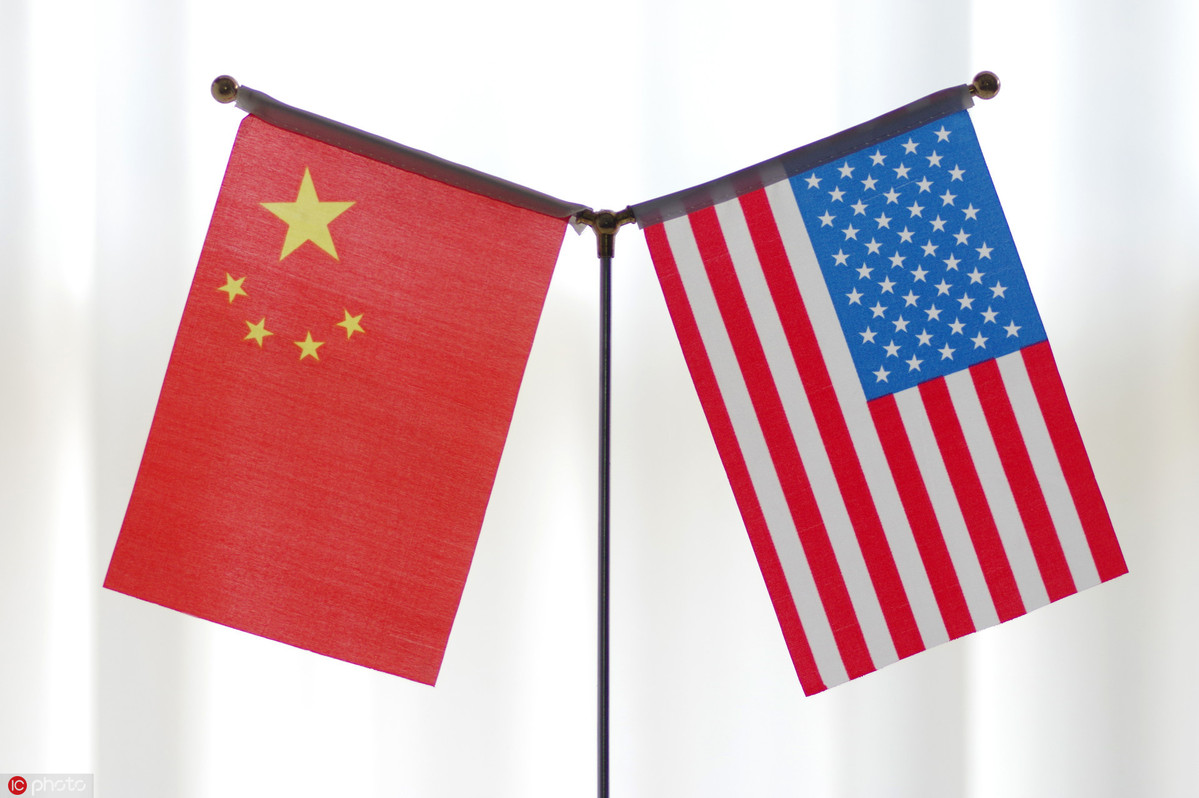Forever the bully, US never gets tired of playing the 'Taiwan card'
By Li Zhenguang | China Daily | Updated: 2019-11-08 07:16

Twenty departments including the State Council's Taiwan Affairs Office and the National Development and Reform Commission unveiled"26 measures" on Monday to further enhance cross-Straits economic and cultural exchanges. That the new measures follow the"31 measures" introduced last year shows the Chinese mainland is making increasing efforts to share the fruits of its development with Taiwan compatriots.
Since the new measures, which accord the same treatment to Taiwan and mainland compatriots, are aimed at promoting the interests of the island's residents, the Tsai Ing-wen administration should welcome them instead of intensifying tensions across the Straits by pushing forward its "independence" agenda or seeking the help of external forces to confront Beijing.
The United States has always tried to meddle in China's internal affairs. From the "Taiwan Relations Act" in 1979 to the "Taiwan Travel Act" in 2018, the US has used its domestic laws to hold cross-Straits relations to ransom and support separatist forces on the island, in order to fulfill its own narrow political goals.
The latest example of the US poking its dirty nose into cross-Straits affairs is the "Taiwan Allies International Protection and Enhancement Initiative Act of 2019" (or "Taipei Act") passed by the US Congress recently. The main purpose of the so-called act is to coerce Taiwan's existing 15"diplomatic partners" to not sever their ties with the island, as six countries have switched their diplomatic relations from Taipei to Beijing since Tsai took office in 2016.
The "Taipei Act" once again proves the US supports "the pro-independence" Democratic Progressive Party administration on the island, as it says Washington will downgrade diplomatic relations with and suspend assistance, including military and financial assistance, to any of the 15 countries that cut off ties with the island.
With the US-instigated trade war dealing a blow to Sino-US relations, Washington intends to use Taiwan-related legislation to not only help the DPP to hold on to power and further strain cross-Straits ties but also put increasing pressure on Beijing to accept its unacceptable demands in the Sino-US trade talks.
No wonder the ruling DPP celebrated the passing of the "Taipei Act" by the US Congress recently, with Tsai thanking the US in the hope that the legislation would stop the 15 countries from severing ties with the island.
But the US will extract its pound of flesh from Taiwan in exchange for making it feel secure, howsoever temporarily. The US will make sure the Tsai administration adheres to US diktats in return and more resolutely promotes Washington's Indo-Pacific strategy to harm Beijing's interests. Of course, by passing the act, the Congress has also ensured that the island leans more toward the US while seeking more security protection.
Thanks to the renewed US support, the ruling DPP could feel more emboldened to push ahead with its separatist agenda and further harm cross-Straits ties.
To please the US in return for some political gains, the Tsai administration is willing to serve as a lackey of Washington to contain Beijing. And under the pretext of defending the island, the US can bleed Taiwan dry by forcing it to purchase more and more expensive but outdated weapons.
Despite all this, however, the "Taipei Act" may not be able to stop the 15 countries from severing their ties with Taiwan, because mutual benefits, not the empty promises of the US, will serve their national interests. Besides, it is getting increasingly difficult for the US to influence the decision-makers of small countries to toe its line.
A total of 180 of the about 200 countries in the world, including the US, recognize the government of the People's Republic of China as the sole legitimate government that represents China, acknowledge that Taiwan is an inalienable part of China, and adhere to the one-China principle. The US act can never change these facts.
Hence, it is time the Tsai administration understood that it could get a wider space to promote the island's international activities only when it returns to the right track and acknowledges the 1992 Consensus that there is only one China, not by counting on US support.
The author is a professor at the Institute of Taiwan Studies, Beijing Union University.
The views don't necessarily represent those of China Daily.
























